Ireland's first female president, a woman of pioneering spirit and a welcoming heart - Mary Robinson.
Editor’s note: Women's History Month, March, highlights the contributions of women to events in history and contemporary society. Women's History Month is celebrated annually in the month of March in the United States, since 1987. IrishCentral marks Women's History Month by celebrating wonderful Irish women past and present.
Former president, Mary Robinson is the most consequential Irish woman of the 20th century. Don’t take my word for it—a nationwide survey by RTÉ Television in 2010 named Mary Robinson as the only woman in the top five, and she placed third behind Nobel Prize winner John Hume and War of Independence hero Michael Collins.
Robinson was elected president of the Irish Republic in 1990, creating perhaps the biggest shock wave in the lifetime of Irish politics.
All-powerful Fianna Fáil were running one of their top men, Brian Lenihan who looked like a shoo-in. However, during the campaign, it became public that Lenihan had sought to illegally influence the president of Ireland Patrick Hillery when he was deciding whether to dismiss the Parliament and call an election or not.
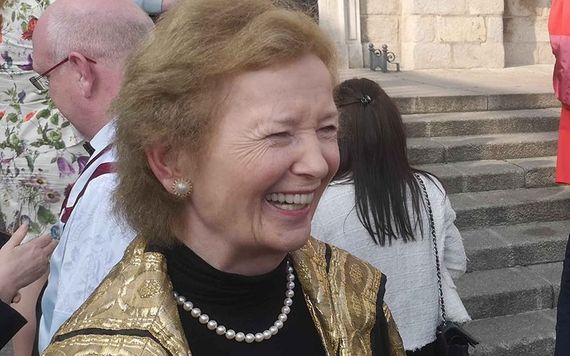
Mary Robinson photographed at Trinity College.
That did it for Lenihan and Robinson, to everyone’s astonishment, was elected.
Her victory was achieved against all odds. Her only political experience was as a member of the Irish Senate from Trinity College, hardly a powerful platform. Just a few years earlier she was soundly defeated in a race for a Dáil seat.
She was, however, widely known as a pioneering spirit at a time when women were a decidedly second-class in Ireland.
She remembers going on house calls with her father, the local doctor in Ballina, and witnessing births where the first question was, “Is it a boy or a child?”
Amazing to think about now, but when she started her career women were effectively voiceless. Only one woman in the modern era, Maire Geoghegan Quinn had ever been appointed to the cabinet (Countess Markievicz had served very briefly in the first Irish revolutionary government.)
There was no shortage of issues for Robinson when she started her political career. Family planning was forbidden with condoms and birth control pills illegal, women could not serve on juries, women had to retire from teaching and other government positions when they married, and women were paid about half the rate men were for similar jobs.
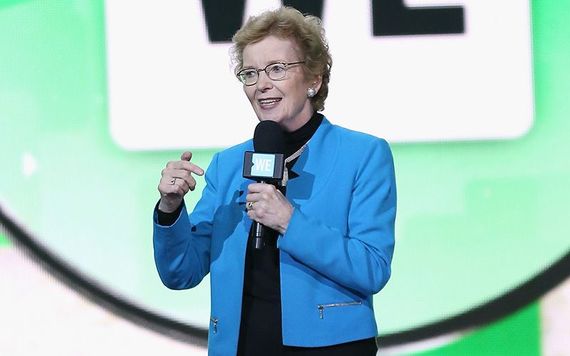
Mary Robinson speaking from stage at a recent conference.
The all-powerful church found her a juicy target and honed in on her advocacy of family planning, not surprising given their obsession with female bodies. They became aware of this uppity woman early on when she proposed a family planning bill.
The local bishop denounced her from the pulpit in her own hometown of Ballina for advocating contraception. Her parents who were present left the cathedral in deep anguish. The young senator was summoned to an audience with the Irish Primate Cardinal William Conway.
Hopeful of getting a fair hearing and explaining the need for family planning, instead she got “a terrible coldness.”

Love Irish history? Share your favorite stories with other history buffs in the IrishCentral History Facebook group.
Despite all that, Robinson made it to the presidency and proceeded to blow the doors off what had been a veritable retirement home job for aged pols.
She will be forever remembered by exiles as the first president who reached out to the Irish abroad and invited them back home. The lighting of a symbolic candle in the window at the president’s residence was a highlight.
She also threw wide open the doors of Áras an Uachtaráin to community groups all across the country, making it the people’s house. She met and shook hands with Gerry Adams who was then the banned president of Sinn Féin which was an incredibly significant step forward.
Her approval rating was an amazing 93 percent in office. She left in 1997 to become UN High Commissioner for Human Rights and is still active on the world stage.
It is unlikely we will ever see her likes again.
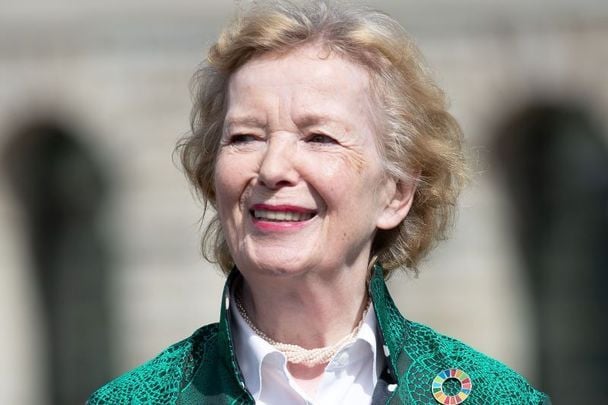

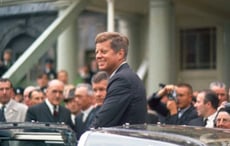
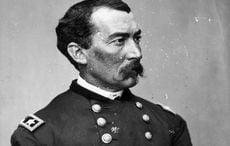
Comments